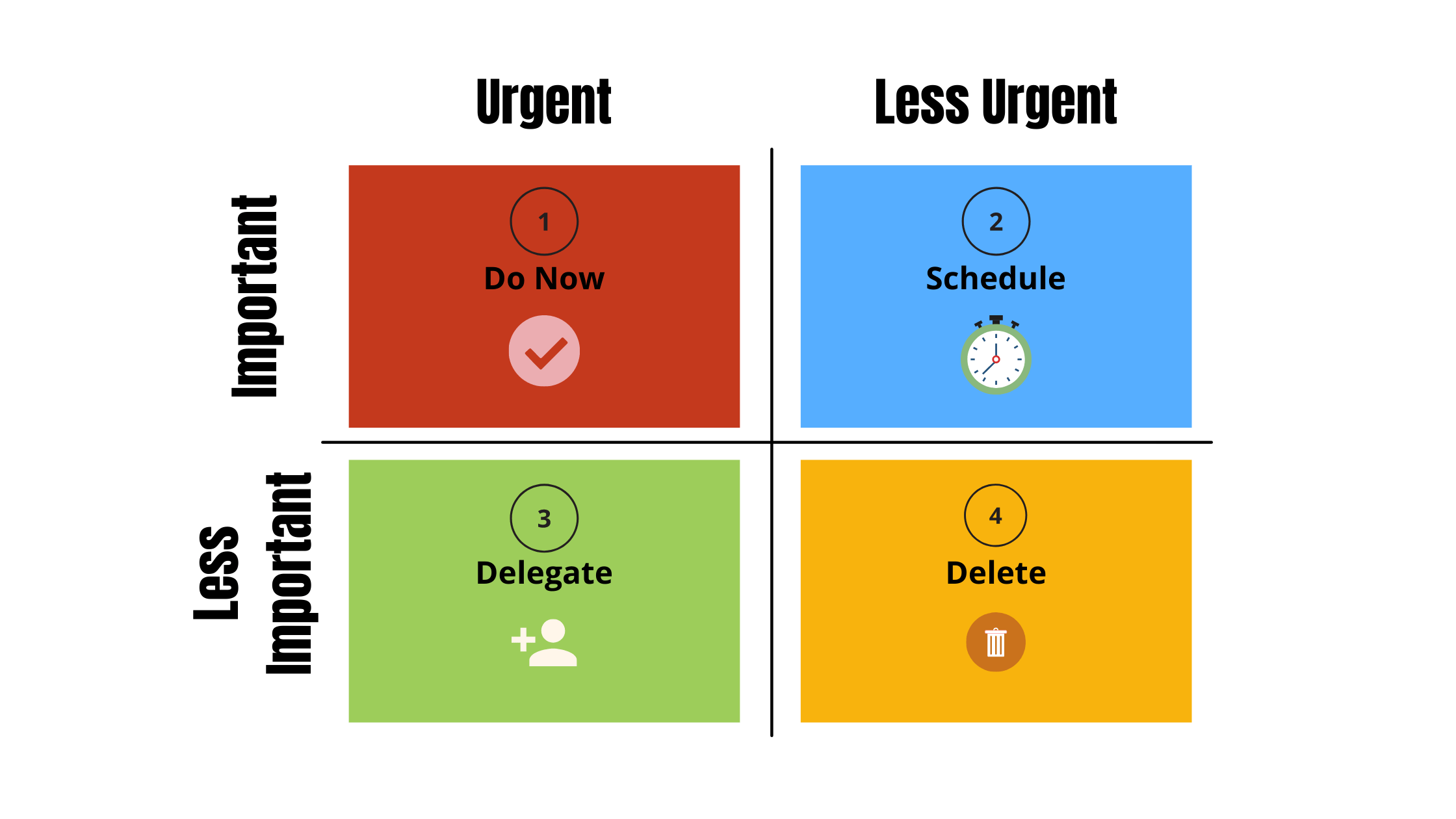My thoughts on time management
5 min read

In today's society, wasting time scrolling endlessly on social media, procrastinating, and watching TV excessively, make people forget that time is the most valuable resource. All these activities aren't a waste of time but doing them for hours end is. Effectively managing your time can contribute a lot to your personal and professional growth.
Time Management
It is the process that involves planning and organizing all the activities you do within specified periods. Setting personal goals, spending time towards achieving them, and restricting unproductive activities can turn your whole life around. Effective time management is not about cramming more tasks into your day but rather about working smarter, not harder.
Time Management: Tips

Goals: Think of some goals that you want to achieve and write them down. Think of how you will achieve them, break them into small steps and try to accomplish them slowly and gradually.
Perfectionist: Don't try to be a perfectionist and do all the tasks with dedication, it will only drain you of your energy early in the day itself. Doing each task with perfection can also be time-consuming and brings pressure, which is not needed.
Prioritization: It is very crucial to figure out what tasks are of more importance and urgency than others. Plan according to both these factors to get the urgent and important work done first.
Schedule: Develop a daily, weekly, or monthly schedule for tasks and activities. Also, remember to take breaks between tasks to recharge your energy and also refresh your mood.
Procrastination: Procrastination can be very dangerous. Complete them into small, manageable parts and tackle them one step at a time. Try to finish them within the given deadline.
What's New:
DIY: Create Your Own Cloud with Kubernetes: Have you ever thought about building your own cloud? Well, this 3 part blog series will teach you how to do it.
Part 1: Preparing the groundwork for your cloud. Challenges faced during the preparation and operation of Kubernetes on bare metal and a ready-made recipe for provisioning infrastructure.
Part 2: Networking, storage, and virtualization. How to turn Kubernetes into a tool for launching virtual machines and what is needed for this.
Part 3: Cluster API and how to start provisioning Kubernetes clusters at the push of a button. How autoscaling works, dynamic provisioning of volumes, and load balancers.
GPT is the Heroku of AI: An interesting read in which the author explains why he does not see any primary value of GPT to help him develop novel use cases or features.
I asked 100 devs why they aren’t shipping faster. Here’s what I learned: Daksh Gupta write about his conversations with engineering leaders which makes it so much interesting.
Sponsored Content:
Twingate: It is a software solution designed to provide secure, zero-trust access to resources with remote access to the company's resources. Twingate uses a decentralized architecture, which enhances security.
Kubeslice: It solves the problem of managing multi-cluster applications by isolation of a network within a cluster. It also enables effortless communication across clusters situated in different data centres or cloud provider regions.
Pieces: Pieces, enhance collaboration between humans and AI, helping developers manage workflows efficiently. It reduces the need for frequent context switching, thereby boosting productivity, simplifying collaboration, and fostering learning.
SquareX: It continuously monitors web traffic patterns and user interactions on your browser to protect your system from malicious activities. It has an isolation technology which creates a secure, separate environment to access a website that has been flagged as suspicious.
Terramate: It is an open-source code generator and orchestrator for terraform. It facilitates the management of terraform projects with large resources. It converts the project into multiple stacks to decrease CI/CD runtime and promotes easy management.
Komodor: It is a Kubernetes Troubleshooting tool that constantly monitors the Kubernetes infrastructure, and helps developers and operations teams to identify and resolve issues within the Kubernetes clusters efficiently.
Odigos: It is an open-source tool that produces distributed traces for any application without changing the codebase. It provides automatic data instrumentation from an application and produces distributed traces, logs, and metrics.
Cyclops: It is an amazing tool that is used for managing and interacting with Kubernetes clusters. Its user-friendly UI makes it easier to deploy applications without writing complex Kubernetes configuration files.
Qubinets: Qubinets is a very helpful tool using which complete data infrastructure eco system can be quickly created by developers and non developers. Handling complex infrastructure that you have built, is Qubinets specialty. It also provides its users with an AI assistant that helps you throughout the process.
Upcoming conferences:
Kubernetes Community Days Romania 2024 25 Apr, Thu 07:00 am
KubeHuddle Toronto 2024 8 May, Wed 00:00 am
Kuberentes Community Days Dhaka 2024 11 May, Sat 03:00 am
Kubernetes Community Days Istanbul 15 May, Wed 06:00 am